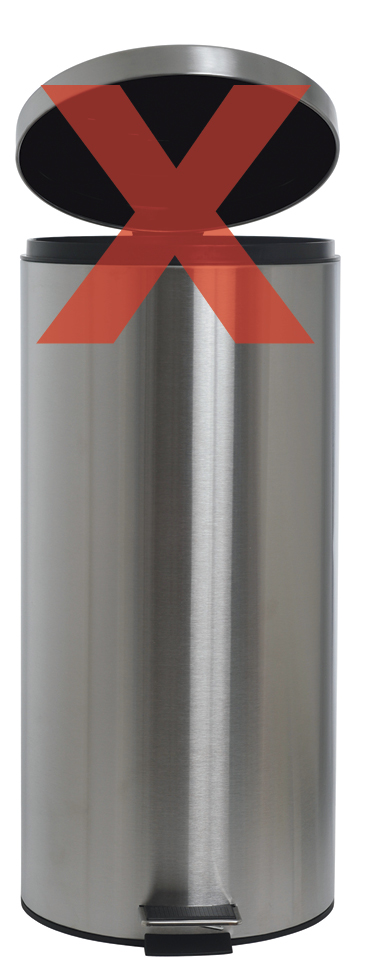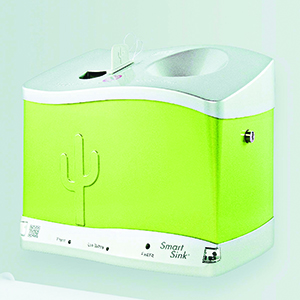Properly handling COVID-19 vaccines & other pharmaceuticals to prevent diversion
Before COVID-19 vaccines were widely available in the U.S., reports surfaced of drug diversion from the intended recipients to other individuals for illicit use.

“While here in the United States we now have what we need, other countries like Colombia and India don’t, so that’s where we are seeing some of the black market activity,” says Rob Dickey, Director of Contracts and Direct Sourcing at HealthTrust. “Vaccines are going for $1,200 to $1,500 per dose to people who can’t get them.”
Use it or lose it
The ideal way to avoid vaccine drug diversion, of course, is to use everything you have. Reading Hospital in Pennsylvania, part of Tower Health, made that a priority after rapidly assembling COVID-19 vaccine clinics in hospital conference centers, infusion clinics and a post-acute care unit that wasn’t in use. The hospital administered up to 600 doses per day and diligently avoided waste.

“We had to get creative in a short timeframe in order to be successful,” says Mike Kleinschmidt, PharmD, MBA, BCPS, DPLA, Director of Pharmacy, Sleep and EEG at Reading. “We would walk around the hospital, call law enforcement, EMS—ask anyone we could if they needed a vaccine so that we didn’t waste product.”
He advises that healthcare facilities determine where the vaccine is needed in the community and reach out to underserved populations. “Our initial strategy was to have people come to us. Now we are doing mobile pop-up clinics out in the community, and extra product has been used there as well,” Kleinschmidt explains.

Managing unused & expired products
Hospitals and clinics with expired or unused product should notify the local health department so it doesn’t continue sending product if the demand is not there. Then, make sure formal pharmacy waste management policies and procedures are in place to dictate proper disposal of unused and expired vaccine product.
An effective vaccine inventory system is essential in this effort—an effort that includes daily product inventory and reconciliation. “We knew exactly how many vials were pulled, used and given out each day,” explains Kleinschmidt.
Improperly disposing of pharmaceutical waste creates vulnerabilities to unintended consequences. “If you have expired product and dispose of it inappropriately, someone could come along and use it for the black market,” says Kleinschmidt. “Or, someone could find it and think it was thrown away in error and try to use it, and then we couldn’t guarantee the potency or safety of that product.”
Controlled substance waste management systems are integral to responsible pharmacy operations.
Options for pharmaceutical waste management
The U.S. Department of Defense recommends that all biowaste be captured in pharmaceutical waste containers to prevent drug diversion. Stericycle offers comprehensive waste management services, including containers for reusable sharps as well as red bag waste containers. Stericycle’s pharmaceutical waste product has a charcoal solution that deactivates the substance.
“Most pharmaceutical waste products must be incinerated. Stericycle owns many of these facilities and has access to incineration capabilities,” explains Dickey.

“For narcotic waste, we use Cactus Sink by Stryker,” says Kleinschmidt. Cactus Smart Sink is a securely locked machine that is installed in medication rooms or where healthcare providers can dispose of medicines on the spot, so that they don’t go into the wastewater stream or sink. “The Cactus solution is battery operated, tells you when the container is full (there is a scale inside it), and lets you know when the battery needs recharging. It’s also harder to get product out of it,” adds Dickey.
Reading Hospital’s pharmacy also uses Rx Destroyer, a pharmaceutical disposal system that is distributed by Global Focus Marketing & Distribution. “Rx Destroyer is a user-friendly product, and they have a proprietary solution,” says Dickey. Like Stericycle’s product, Rx Destroyer uses a reservoir with an activated carbon slurry formula that dissolves medications on contact and deactivates them, so they no longer have any medical properties. Once the substance is disposed into the system, it can be thrown into the trash or picked up by an authorized waste management company.
For vaccine waste, the best practice is to use a reverse distributor. Reading Hospital uses Inmar, which comes to the facility once per quarter for waste collection. Until then, expired vaccine product is stored within the pharmacy in a secure location, segregated from regular medication supply, and clearly labeled “Expired Medications—Not for Use.” “Inmar has been a great partner. We’re able to leverage some of our expired medication credit for additional product and medication tracking, which has been a big win for us,” says Kleinschmidt.
Share Email COVID-19, On-contract product, Q3 2021, Vaccinations




